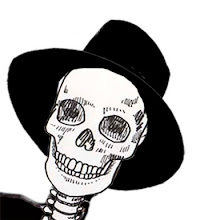In my personal life, in my social experience, and in my
work, I became, through the years, increasingly aware of the void left by the
absence of a father’s approval.
Yes, my father loved me.
Yes, he cared about me.
Yes, he was alive, and just a phone call away. But I never felt connected to him. I never felt secure in our relationship. I never felt like I could talk to
him. I could never feel his support, or his love.
In working for so many years with young people as a Youth
Center Director, a High School Counselor, a Mental Health Counselor, and a
Minister, I found in so many of them the same void, the same need for
acceptance, for love and approval that I’d lived with for most of my life. These were kids at risk. I worked with many adults as well. And they were adults at risk. They were really just the kids at
risk, but years later. I too grew from a
teenager at risk, to a young man at risk, to an adult at risk, and finally out
of the, ‘at risk’ part altogether. Well, I didn’t exactly grow out of
it. I worked my way out of
it. I worked very hard, and for
very many years. But the common
thread with most all of these troubled souls was the disconnection from their
father. Whether they were male or
female, it was the disconnection from their father and the inability to feel
his approval that most often created the alienation and vulnerability in their
lives. The ‘at risk’ part
played itself out in the same way with most, if not all, of them. There was the involvement in drugs and
alcohol. There was dangerous and
impulsive behavior. There was
flirtation with death. There was
the seeking of love wherever it, or an imitation of it, could be found.
In different periods of my teenage and adult life I personally
lived near the same edge, closer to it at times than at others, but near the
edge nevertheless. Unlike so many
young people who would eventually become subject to its intoxication, I was
able to recognize my vulnerability, my own overwhelming need for my father, and
not settle for the readily available, but inadequate fix of cheap love, cheap
booze, or cheap drugs. It would
have been easy to lose myself in its grip. I had been years craving the love of my father. There had always been other men more
than willing to offer themselves to me in various unfavorable circumstances,
and there have been just as many years of my understanding that it was an
imitation love they were offering, and that it would never fill the void I
carried within me. Too many at
risk people have been unable to internalize that understanding for
themselves. I have seen so many
become first immersed, and then lost, in homosexuality, in sexual addiction of
various kinds, in grief, despair, and self loathing. I have yet to know anyone who wound up truly happy, truly
fulfilled as a result of such personal compromise. I have always felt very deeply for those in such need. And I still do to this day. That will probably never change.
Some have had a similar relationship with their fathers that
I had with mine. Some have had
fathers who were brutal, sadistic, cruel, and even criminal, making mine look
like a puppy dog, albeit a pit bull rather than a big cuddly. But some have never known their fathers. Some fathers were absent in body, some absent in mind, or
spirit. Some absent since birth,
even. Some fathers were separated
from their children by divorce.
Some left, disappeared, or died later on in life before they and their
child ever connected in a deep and meaningful way. But all of those whom I’ve known to have lived apart from
such connection, acceptance, and approval suffered many of the same symptoms
that I lived with for so many years. . . . . . . . . sadness, loneliness,
hopelessness and alienation.
It’s what drives the teenage suicide rate. It drives much of the gay and lesbian
life. It drives a great deal of
the drug and liquor industries. It
drives the psychiatric client lists.
It drives the new age spiritual
movements. It drives spiritual
feminism. It even causes people to
be driven down a compulsive road to success, ever needing to prove their
worthiness in order to gain the approval of their fathers.
It also drives the search for meaning in ones life.
And it has always driven me to write.
The fact that early on I was able to find a means of
circumventing many of the destructive ramifications of such a void does not
diminish in any way the powerful impact, the pain, and the regret that the
absence of a meaningful father/son relationship has visited upon me over the
years.
I am not unique in that respect. Not by any means.
In fact, I would consider myself to be the norm in such a common
dynamic, rather than the exception.
If you’re a father please find a way to connect with your
son or daughter,
no matter what their age.
Or yours.
It is never too late for such a redemptive union.
It could be life changing for the both of you.

